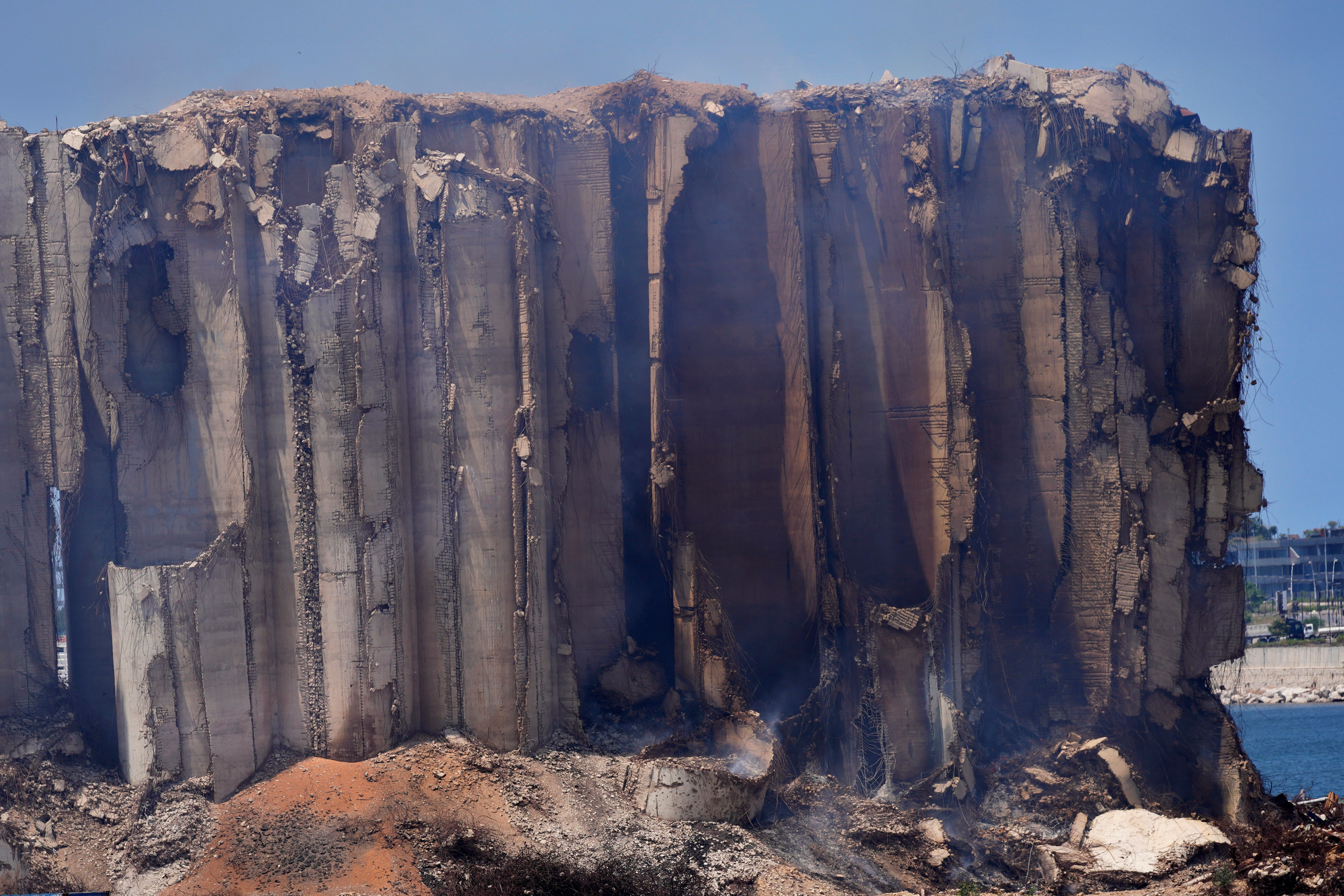Part of Beirut port silos, damaged in 2020 blast, collapses
A section of Beirut’s massive port grain silos, shredded in the 2020 explosion, has collapsed after a weekslong fire

Your support helps us to tell the story
From reproductive rights to climate change to Big Tech, The Independent is on the ground when the story is developing. Whether it's investigating the financials of Elon Musk's pro-Trump PAC or producing our latest documentary, 'The A Word', which shines a light on the American women fighting for reproductive rights, we know how important it is to parse out the facts from the messaging.
At such a critical moment in US history, we need reporters on the ground. Your donation allows us to keep sending journalists to speak to both sides of the story.
The Independent is trusted by Americans across the entire political spectrum. And unlike many other quality news outlets, we choose not to lock Americans out of our reporting and analysis with paywalls. We believe quality journalism should be available to everyone, paid for by those who can afford it.
Your support makes all the difference.A section of Beirut's massive port grain silos, shredded in the 2020 explosion, collapsed on Sunday after a weekslong fire triggered by grains that had fermented and ignited in the summer heat.
The northern block of the silos collapsed in a huge cloud of dust after what sounded like an explosion. It was not immediately clear if anyone was injured.
The 50 year-old, 48-meter tall giant silos withstood the force of the explosion two years ago, effectively shielding the western part of Beirut from the blast that killed over 200 people, wounded more than 6,000 and badly damaged entire neighborhoods.
In July, a fire broke out in the northern block of the silos due to fermenting grains. Firefighters and Lebanese Army soldiers were unable to put out the fire which continue smoldering for weeks, releasing odors into nearby cities. The environment and health ministries last week issued instructions to residents living near the port to stay indoors in well-ventilated spaces.
Emmanuel Durand, a French civil engineer who volunteered for the government-commissioned team of experts, told the Associated Press that the northern block of the silo has already been tipping since the day of the blast, but the fire has weakened its frail structure, accelerating its collapse.